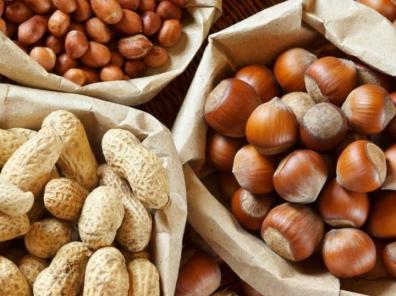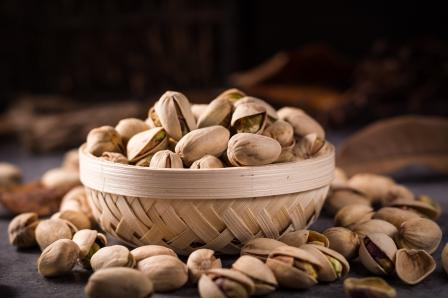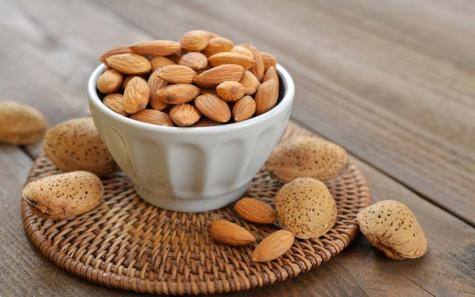When it comes to healthy snacking options, raw peanuts are often overlooked, overshadowed by more popular nuts like almonds and walnuts. However, raw peanuts are a nutritional powerhouse packed with essential nutrients and health benefits that make them a valuable addition to any diet. In this comprehensive guide, we will delve into the world of raw peanuts, exploring their impressive nutritional profile, health benefits, and delicious ways to incorporate them into your daily routine. The Nutritional Profile of Raw Peanuts: Raw peanuts are a rich source of essential nutrients, including protein, healthy fats, vitamins, and minerals. One serving of raw peanuts (about one ounce or 28 grams) contains approximately: – Protein: 7 grams – Fat: 14 grams (mostly healthy unsaturated fats) – Fiber: 2 grams – Vitamin E: 2.2 mg (13% DV) – Niacin (vitamin B3): 4 mg (20% DV) – Folate (vitamin B9): 66 mcg (17% DV) – Magnesium: 50 mg (12% DV) – Phosphorus: 134 mg (14% DV) Health Benefits of Raw Peanuts: 1. Heart Health: Raw peanuts contain high levels of monounsaturated and polyunsaturated fats, which are known to promote heart health by lowering LDL cholesterol levels and reducing the risk of cardiovascular diseases.
.
2. Weight Management: Despite their calorie density, raw peanuts can aid in weight management due to their high protein and fiber content, which helps increase satiety and reduce overall calorie intake. 3. Blood Sugar Control: The fiber and healthy fats in raw peanuts help stabilize blood sugar levels, making them a suitable snack option for individuals with diabetes or those looking to manage their blood sugar levels. 4. Nutrient Density: Raw peanuts are a nutrient-dense food, packed with essential vitamins and minerals that support overall health and well-being. 5. Antioxidant Properties: Raw peanuts contain various antioxidants, such as vitamin E and resveratrol, which help protect cells from damage caused by free radicals, thus reducing the risk of chronic diseases. 6. Energy Boost: The combination of healthy fats, protein, and fiber in raw peanuts provides a sustained source of energy, making them an ideal snack choice for active individuals. How to Incorporate Raw Peanuts into Your Diet: 1. Snacking: Enjoy a handful of raw peanuts as a satisfying snack between meals or add them to homemade trail mix for a nutritious on-the-go option. 2. Nut Butter: Make your own raw peanut butter by blending raw peanuts in a food processor until smooth. Spread it on whole grain toast or use it as a dip for fruits and veggies. 3. Salad Toppings: Sprinkle crushed raw peanuts on salads for added crunch and protein, or use them as a garnish for noodle dishes or soups.
..
4. Stir-fries: Add whole or crushed raw peanuts to stir-fried dishes for extra texture and flavor, along with a boost of protein and healthy fats. 5. Desserts: Incorporate raw peanuts into baked goods like cookies, brownies, or energy bars for a delicious and nutritious treat. Safety Precautions and Allergies: While raw peanuts offer numerous health benefits, it’s essential to note that some individuals may have allergies to peanuts. If you have a peanut allergy, it’s crucial to avoid raw peanuts and products containing peanuts to prevent severe allergic reactions. Additionally, raw peanuts can sometimes be contaminated with aflatoxins, a type of mold that may pose health risks if consumed in large quantities. To minimize the risk of aflatoxin exposure, store raw peanuts in a cool, dry place and discard any peanuts that appear moldy or rancid. Conclusion: In conclusion, raw peanuts are a versatile and nutritious food that offers a wide range of health benefits, from supporting heart health to providing a sustained source of energy. By incorporating raw peanuts into your diet in various forms, such as snacking, nut butter, salad toppings, stir-fries, and desserts, you can enjoy their delicious flavor and reap the nutritional rewards they have to offer. Remember to consume raw peanuts in moderation and be mindful of allergies and safety precautions to fully appreciate the goodness of this humble legume.
…
**Potential Subheadings for Further Expansion:** – The Role of Raw Peanuts in Plant-Based Nutrition – Comparing Raw Peanuts to Roasted Peanuts: Which Is Better? – Raw Peanuts in Traditional Cuisine and Modern Recipes – Raw Peanuts and Brain Health: Exploring Cognitive Benefits — **The Role of Raw Peanuts in Plant-Based Nutrition** As more people turn to plant-based diets for health, environmental, and ethical reasons, raw peanuts serve as an excellent source of protein and essential nutrients for individuals following vegetarian or vegan lifestyles. Raw peanuts provide all nine essential amino acids, making them a complete protein source that can help meet dietary protein needs without relying on animal products. Incorporating raw peanuts into plant-based meals ensures a balanced intake of protein, healthy fats, vitamins, and minerals necessary for overall health and well-being. **Comparing Raw Peanuts to Roasted Peanuts: Which Is Better?** While both raw and roasted peanuts offer nutritional benefits, the processing methods play a significant role in their overall nutrient content. Raw peanuts retain more of their natural nutrients, including heat-sensitive vitamins like vitamin E, compared to roasted peanuts, which may undergo heat processing that can decrease certain nutrient levels. However, roasted peanuts have a more intense flavor and crunchy texture that some people prefer. Ultimately, choosing between raw and roasted peanuts depends on individual taste preferences and nutritional goals.




Your comment submitted.